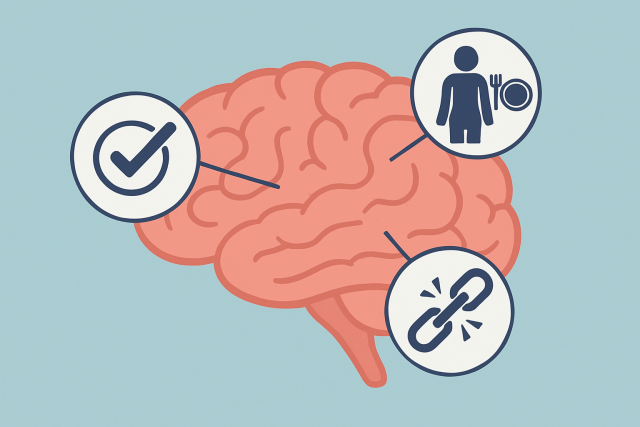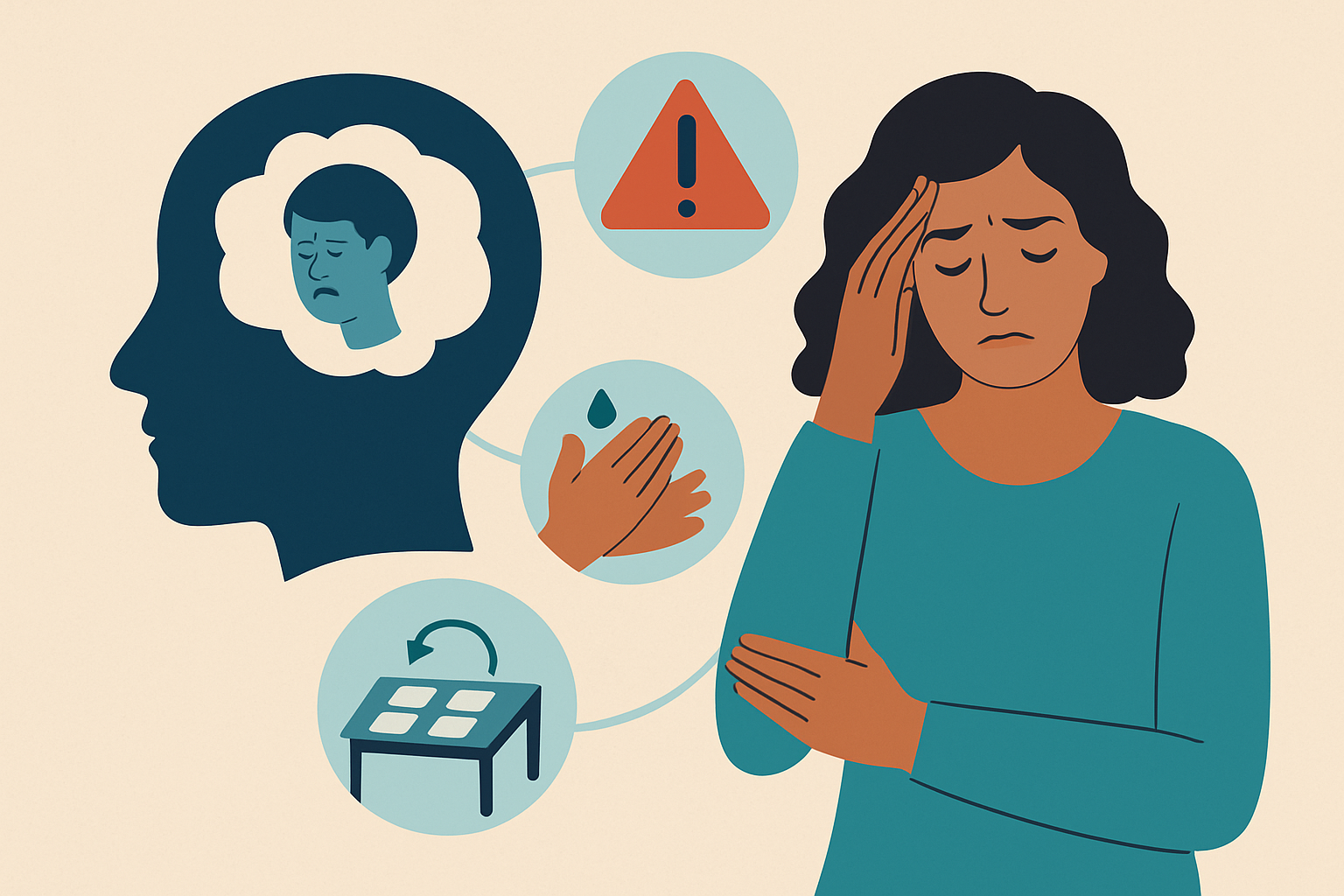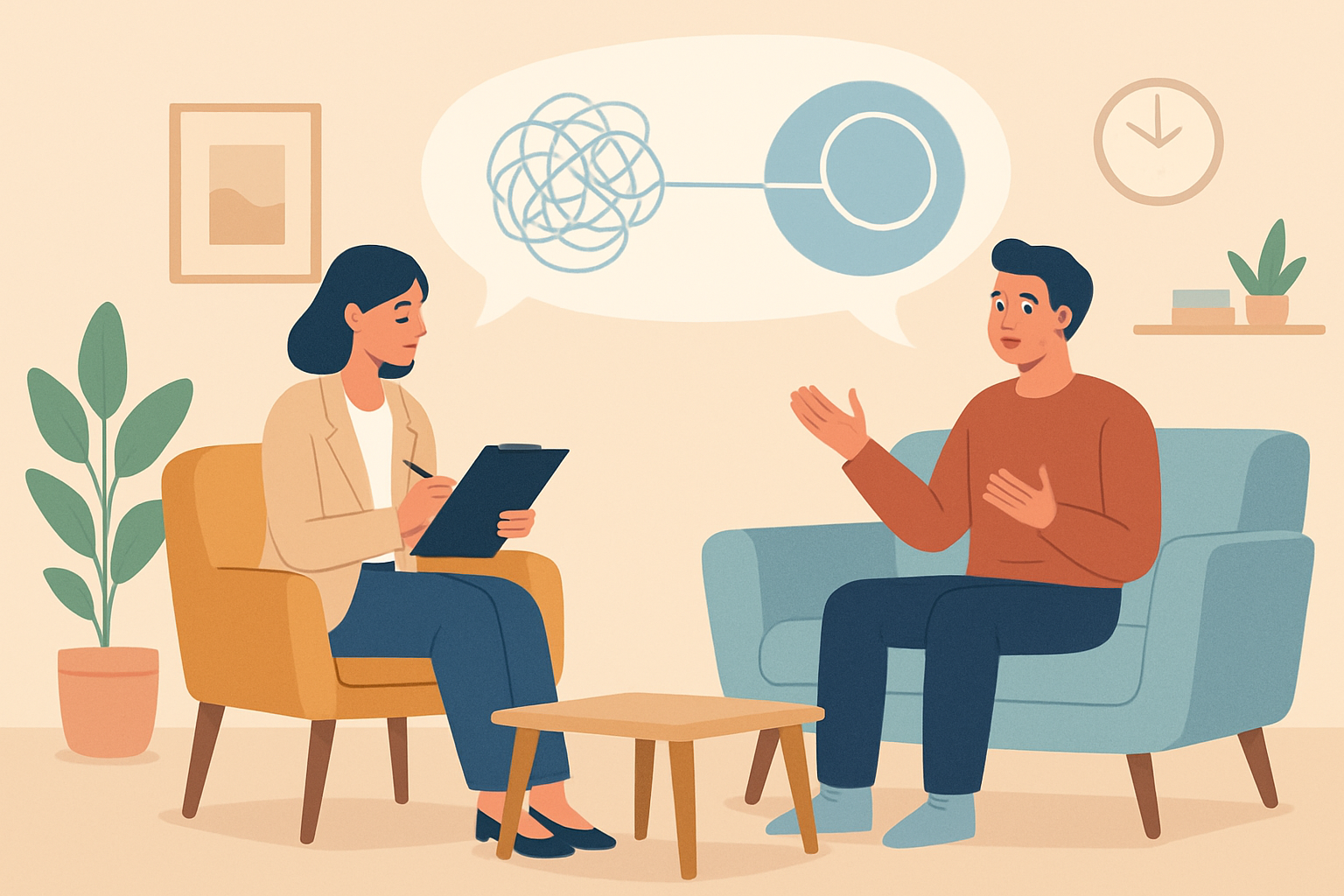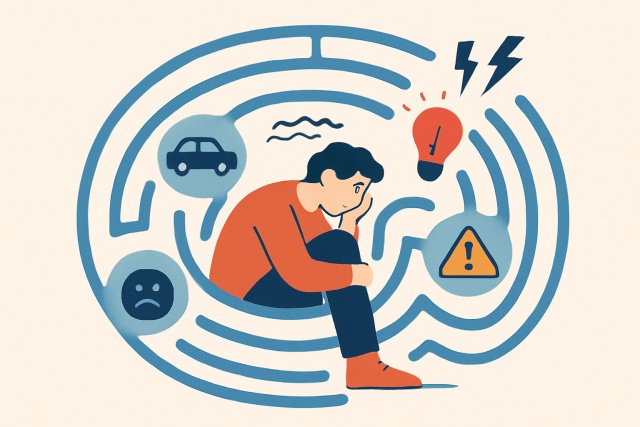
The Link Between OCD and Eating Disorders
Discover the intricate link between OCD and eating disorders, how their symptoms overlap, and approa...
This article sheds light on what OCD really involves by exploring its roots and offering clear guidance on how to manage it or support someone dealing with the condition.
Obsessive-Compulsive Disorder (OCD) is a complex and often misunderstood mental health condition that affects millions worldwide - here's what you need to know about OCD. It can really throw a wrench into daily routines and overall well-being because of persistent intrusive thoughts and repetitive behaviors that just will not quit. Getting a grip on what OCD is all about is not just important for those who live with it. It also matters for their families and communities, helping everyone foster more empathy and support along the way.
Obsessive-Compulsive Disorder is a mental health condition characterized by persistent uncontrollable thoughts called obsessions and repetitive behaviors called compulsions that people feel compelled to perform. These obsessions and compulsions aren’t just quirky habits or little preferences—they usually cause great distress, consume significant time, and interfere with everyday life.
OCD symptoms can show up in many forms depending on the person but usually revolve around nagging obsessions—like fears about contamination or causing harm—and compulsions such as washing hands repeatedly or constantly checking things. These symptoms might be a mild annoyance for some or a full-blown struggle for others. They often flare up when stress comes knocking.

OCD symptoms can vary widely from person to person, meaning each experience is pretty much one of a kind. Unlike the usual worries or daily habits we all have, OCD obsessions sneak in involuntarily and can stir up some serious emotional turmoil. Compulsions often pop up as coping mechanisms, not just random choices someone makes on a whim.
Research suggests that OCD springs from a tangled web of genetic, neurobiological, psychological and environmental influences. While there is no lone culprit to point the finger at, studies tend to agree that imbalances in brain chemistry and certain life experiences often team up to trigger or worsen symptoms.
Diagnosing OCD calls for a careful clinical evaluation by a qualified mental health professional. This usually means rolling up the sleeves for some in-depth interviews and filling out standardized questionnaires. Symptoms are then compared against well-established criteria like those found in the DSM-5.
| DSM-5 OCD Diagnostic Criteria | Description |
|---|---|
| Presence of obsessions, compulsions, or both | Those pesky, recurring thoughts, urges, or behaviors that just won’t take a holiday and keep popping up. |
| Time-consuming nature | These symptoms often hog more than an hour of your day or cause quite a bit of emotional upset. |
| Functional impairment | When these symptoms throw a wrench into your social life, work, or other important daily activities. |
| Not attributable to substances or medical conditions | The symptoms aren’t just side effects of medication, drugs, or other medical problems sneaking in. |
| Disturbance not better explained by another mental disorder | These behaviors and thoughts can’t be chalked up to something else like anxiety or tic disorders—they stand on their own. |
Getting an accurate diagnosis is absolutely key when it comes to crafting a treatment plan that fits the individual like a glove, and it helps avoid those frustrating misdiagnoses that can really throw a wrench in effective care. On top of that, a professional evaluation can spot any co-occurring disorders.
OCD shows up in quite a few different flavors, typically sorted into subtypes based on the main obsessions and compulsions at play. Getting a handle on these distinctions can really make treatment click. Contamination OCD revolves around a deep-rooted fear of germs, while hoarding presents its own unique set of hurdles.
When it comes to tackling OCD, the most effective approach usually blends psychotherapy and medication with supportive care. Cognitive-Behavioral Therapy (CBT), especially Exposure and Response Prevention (ERP), remains the top psychological method. Medications like SSRIs often help dial down symptoms by fine-tuning brain chemistry.
Treatment plans are carefully tailored to each individual considering symptom severity, subtype and personal preferences because one size definitely doesn’t fit all. Sticking with therapy and medication is important to making real progress and having a supportive environment can make all the difference.

Managing OCD day to day often boils down to using practical strategies that help ease anxiety and boost your daily functioning. Things like mindfulness, structured routines and staying alert to your own thoughts can really empower people to tackle their symptoms head-on and soften their impact.
Setbacks are pretty much par for the course when you are dealing with OCD. I have found it really pays off to celebrate the small wins and hold onto hope like a lifeline during the recovery process.
Family and friends play a important role when it comes to supporting someone with OCD. Offering the right kind of support is a bit of a balancing act—mixing empathy with gentle encouragement to seek treatment, all while steering clear of enabling those pesky compulsive behaviors.
"Having solid social support really pulls its weight when it comes to bouncing back from OCD. It keeps people motivated and takes the edge off those all-too-common feelings of loneliness. Relationships grounded in genuine understanding and empathy often pave the way for better treatment outcomes and a noticeable boost in overall wellbeing." – Dr. Susan White, Clinical Psychologist specializing in OCD
OCD is often misunderstood which unfortunately fuels harmful stereotypes that make it seem less serious than it really is. It’s not just about being super tidy or having a thing for cleanliness.
When OCD symptoms start hogging your time or stirring up distress, it's important to reach out to a professional sooner rather than later - here's what you need to know about OCD. Getting help early can tip the scales toward a better outcome. Treatment typically starts with an assessment then shifts toward tailored therapy and possible medication options.

Discover the intricate link between OCD and eating disorders, how their symptoms overlap, and approa...

Discover how Real Event OCD differs from typical OCD, focusing on real past or present events. Learn...

Contempt is a toxic emotion that can erode love and respect in relationships. Discover what contempt...

Language processing disorder impacts how children understand and use language. Learn to recognize ea...